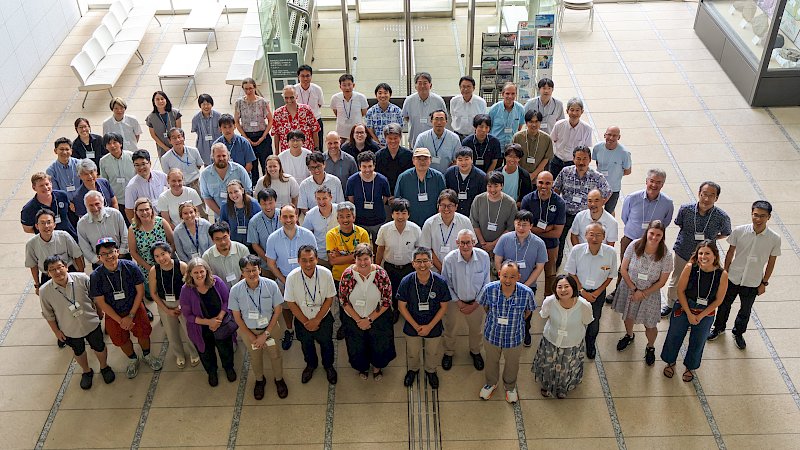Australian and Japanese Antarctic and Southern Ocean scientists have strengthened their commitment to future research collaborations at a workshop in Tokyo.
Scientists from the Australian Antarctic Program and the National Institute of Polar Research (Japan) met in the Japanese capital across three days at the end of July.
There were 55 Japanese and 26 Australian scientists in attendance, across various disciplines of Antarctic science.

The workshop was hosted by the National Institute of Polar Research, Japan, Australian Antarctic Division, Australian Antarctic Program Partnership, University of Tasmania, Science Council of Japan, with funding support from the Australia-Japan Foundation and Japan Society for the Promotion of Science.
It focused on mapping out future Australia-Japan research collaborations and initiatives in Antarctic science, and to strengthen the relationship between the Japanese and Australian Antarctic programs.
Dr So Kawaguchi (Principal Research Scientist, Australian Antarctic Division), said the relationship between Australia and Japan is crucial to Antarctic and Southern Ocean science.
"Collaborations between the two countries have resulted in a huge amount of critically important research," Dr Kawaguchi said.
"It's vital that we continue to nurture this relationship."
The workshop identified priority areas and coordination for future joint Antarctic and Southern Ocean science programs in the next 5 years and beyond.
That will include enhanced logistical coordination between the two countries, which will increase opportunities for a holistic approach to measuring and modelling the Antarctic environment and its associated processes.
"For example, strengthening long-term penguin monitoring and its coordination with at-sea krill surveys by both nations will provide important information for policy makers and the Commission for the Conservation of Antarctic Marine Living Resources to ensure the conservation of wildlife and their habitats under a changing climate".
"An updated synthesis of the East Antarctic pelagic ecosystem using recent multidisciplinary ecological surveys will provide further opportunities for developing collaborative multinational research in future fieldwork campaigns", Dr Kawaguchi said.
The Australia - Japan Workshop will serve as an important catalyst for further strengthening the strategic collaboration in Antarctic science.
"We need to be looking years into the future, to identify what our priorities should be," Dr Kawaguchi said.
"Both countries are committed to conducting ground-breaking research on key priority questions in their respective Antarctic research strategies."
The workshop released a Communiqué including specific statements and plans from each discipline group.






